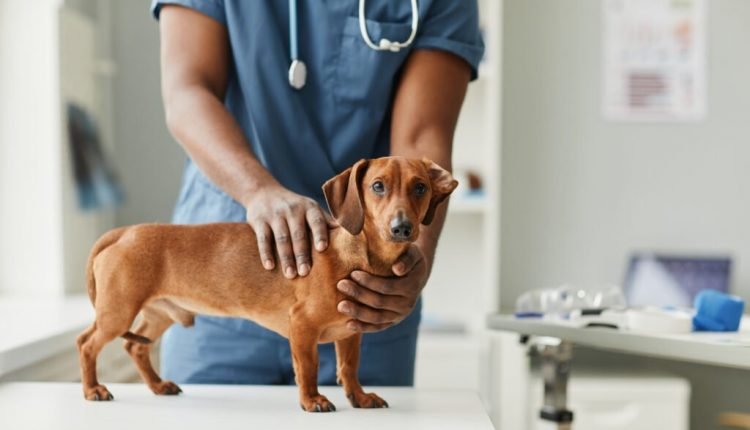[ad_1]
You want your pet to get the best care possible, but vet bills can add up quickly, especially in emergency situations. To help ease some of that financial pressure, we’ve put together a list of tips on how to save money at the vet.
Invest in quality food
Your dog’s food has a big impact on his overall health, so another way to start saving money at the vet is to invest in a high-quality diet. Brands that use by-products, fillers, additives, and preservatives are less expensive at the time of purchase, but those short-term savings are lost in the long term when your pet begins to experience problems with improper nutrition. When choosing a diet for your pet, you should ask yourself several questions, including:
- Do they use high quality ingredients?
- Is a veterinary nutritionist involved in the business?
- Do they share the exact nutritional content of the food?
- Do they have recipes adapted to different nutritional needs?
Freshpet is a great choice, as each line offers well-balanced recipes packed with high-quality ingredients and nutrients to help your pet maintain good health. For a full list of questions to ask yourself when choosing food for your pet, check out our blog.
Don’t skip your annual wellness checkups
You may feel like you’re saving money by only scheduling appointments when your pet is sick, but in the long run it’ll probably end up costing you more. Even if your pet appears to be in perfect health, it is important to bring him in for his annual or semi-annual wellness checks. Animals, especially cats, are good at hiding pain and illness. These appointments therefore give your veterinarian the opportunity to catch an illness before it gets to the point where your pet can no longer hide it. Not only will this give your pet a better prognosis, but the more advanced the stage, the more expensive the treatment tends to be.
Stay on top of chronic diseases
If your pet has a chronic condition such as diabetes or hypothyroidism, your veterinarian will recommend a scheduled exam tailored to your pet’s needs. This will allow them to monitor the disease on a consistent schedule and alert them to any changes so they can adjust medications or treatment plans accordingly. Similar to wellness checkups, sticking to this schedule and keeping your pet’s chronic illness stable will save you money in the long run.

Take control of their dental care at home
Did you know that over 80% of pets have some stage of dental disease? Unfortunately, if left untreated, dental disease can contribute to problems such as:
- Mouth pain
- bad breath
- Unintentional weight loss
- Systemic diseases.
The more your pet’s dental disease progresses, the more they will need professional dental cleaning and possibly tooth extraction, which is not cheap. You can prevent this by monitoring their dental care at home. It’s ideal if you can brush your pet’s teeth twice a day, but it may take a while to reach that frequency. To start, try brushing your teeth twice a week and increase it from there. To find out how, read our guide to brushing your dog’s teeth at home.
Consider pet insurance
No matter how much effort you put into preventative care, emergencies can happen and when they do, you can save money by being prepared. With pet insurance, you can have peace of mind knowing that in an emergency, you can make decisions based on what’s best for your pet, not cost. Generally, insurers offer two different types of coverage:
- Emergency coverage: This coverage can be used for emergencies, but does not cover routine things like annual appointments or vaccinations. It also usually has a lower monthly premium.
- Regular coverage: This is more extensive coverage that can be used any time your pet visits the vet, whether for routine care or an emergency. The monthly premium is also usually higher compared to emergency coverage.
In addition to coverage offered by an insurance company, some veterinary clinics offer an in-house insurance plan that patients can purchase. Although the offers are clinic-specific, they generally help cover the costs associated with wellness checks, vaccinations, and similar routine care.

Maintain a healthy weight
A final way to save money at the vet is to help your pet maintain a healthy weight. Besides dental disease, obesity is one of the most common diseases that veterinarians see in their patients. If left untreated, obesity can lead to serious illnesses, including:
- Diabetes
- heart disease
- Hypertension
- Many types of cancer
Besides causing new problems, obesity can also make existing conditions like osteoarthritis worse. By keeping your pet at a healthy weight, you’ll minimize the risk of them developing obesity-related diseases, all of which will require extensive veterinary care. The good news is that you can easily keep your pet at a healthy weight by following these tips!
We hope these tips inspire you on how you can start saving money at the vet. Got any other tips we haven’t included? Share them in the comments!

Comments are closed, but trackbacks and pingbacks are open.